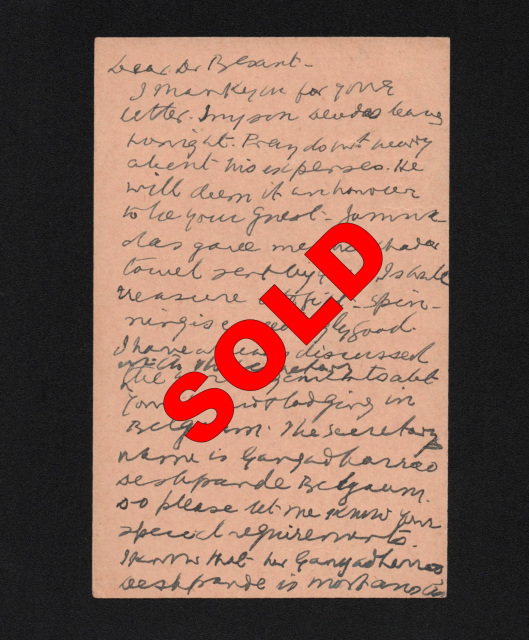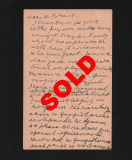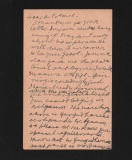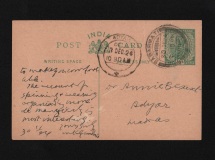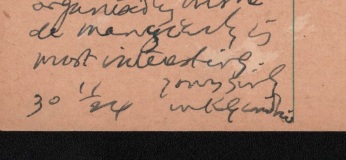- Store
- >
- Political, Military & Royal
- >
- 1924 Mohandas Gandhi Autographed Letter Signed to Dr Annie Bessant (referencing the spinning wheel)
1924 Mohandas Gandhi Autographed Letter Signed to Dr Annie Bessant (referencing the spinning wheel)
ALS, signed "M. K. Gandhi," penned on both sides of a 3.5 x 5.5 India postal card, November 30, 1924. Letter to Dr. Annie Besant, in full: "I thank you for your letter. My son Devdas leaves tonight. Pray do not worry about his expenses. He will deem it an honour to be your guest. Jamnadas gave me the Khadar towel sent by you. I shall treasure the gift: spinning is exceedingly good. I have already discussed with the secretary the arrangements abt your board + lodging in Belgium. The secretary’s name is Gangadharrao Deshpande Belgaum so please let me know your special requirements. I know that Mr Gangadharrao Deshpande is most anxious to make you comfortable. The account of spinning + weaving organized by Mme de Mangiardi is most interesting." In fine condition.
Gandhi's mention of "spinning" is exceptionally important, as he had adopted the spinning wheel as a symbol of economic independence very early on in his movement. His platform started to become popular shortly after World War I, and he developed a broad base of support from both Hindus and Muslims to support peaceful noncooperation. After assuming control of the Indian National Congress in December 1921, Gandhi expanded his nonviolence program to include the swadeshi policy—the boycott of British goods. From this originated his spinning wheel, as he encouraged all Indians to wear khaki (homespun cloth) instead of British-made textiles. He furthered this concept by exhorting Indian men and women, rich or poor, to spend time each day spinning khadi in support of the independence movement. Thus the spinning wheel—and the textile itself—became symbolic of the movement toward Indian independence.

